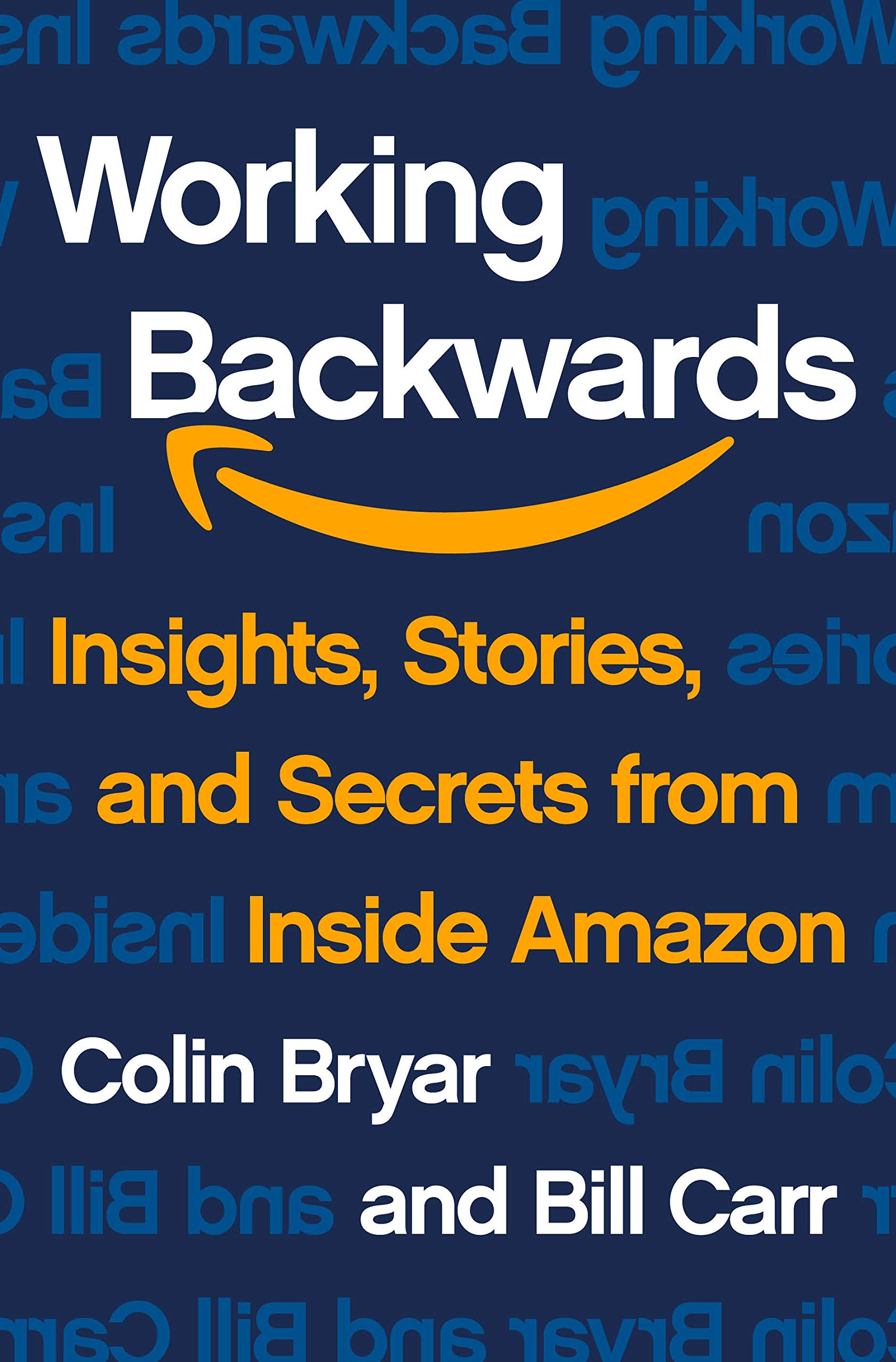
Working Backwards
Maybe it’s useful to preface this review with a statement of my obvious self: I used to work at Amazon (and left with fond memories, albeit an order of magnitude less fond than the two authors), I know lots of people who have worked at Amazon, and am generally repulsed by business books of the haha, business variety (meaning: less about specific narrative or analyses in the vein of Barbarians at the Gate ↗ or A Random Walk Down Wall Street ↗ and more in the vein of suit-and-tie self-help pablum.)
Perhaps I tipped you off with that last qualifier: I did not think this book was particularly good, for me or for anyone.
It is divided into two halves:
- The first half, utterly irredeemable, is about various Amazon-y things: the Bar Raisers program, the concept of “working backwards”, the concept of a “two pizza team”, and so on. I cannot emphasize enough how low-quality this section is: all of the content has been covered elsewhere and by much better writers.
- The second half, slightly better, is narrative walkthroughs of various products launched during the two authors’ tenure and how those launches’ success were owed to Amazon’s core principles. There are some fun tidbits here (in particular, I thought the point around Amazon’s failure to make entrances into the content & streaming market owing to their lack of core differentiator was apt!) but severely lacking in significant introspection. Lots of talk in the Kindle being customer first by offering Whispernet (free 3G access for books); little talk about Whispernet being quietly retired a few years back due to poor unit economics. I can understand the urge to shrink from failures, but that’s where the most interesting lessons can be learned — why was that discussion worth it? How did AWS originally hit market? And so on. Everything felt very, very surface level, as if they had a contractual obligation to not go more than three pages without mentioning a core principle and to never share something that Brad Stone or Jeff Bezos hadn’t already covered in detail.
And about that as if… One of the questions I kept asking myself through this entire book was: why does it exist? It’s not a particularly efficient delivery mechanism for the lessons it tries so bluntly to teach, nor is it interested in really telling the reader the story of how certain things happened that changed the authors’ — or Amazon’s — trajectory. The answer is revealed in the postscript: the two authors now run a consulting & teaching seminar business where they teach companies how to Be More Like Amazon.
So, yeah. I got suckered into reading lead-gen. But maybe you won’t! (If you’re really desperate to learn about Amazon, read The Everything Store ↗ instead.)
© 2023 Justin Duke • I hope you're wearing your favorite sweater.